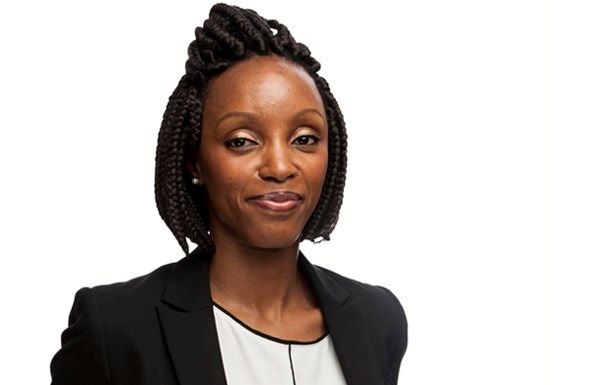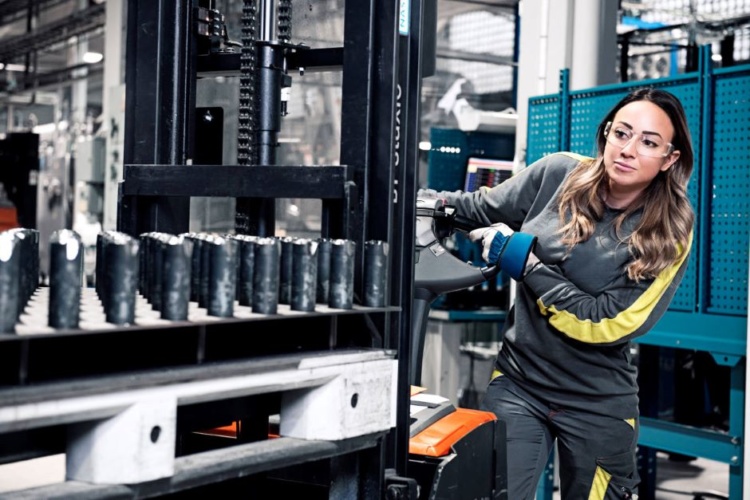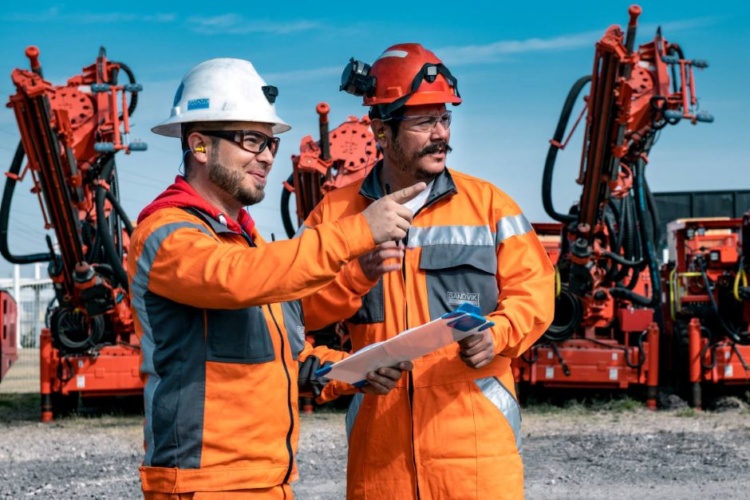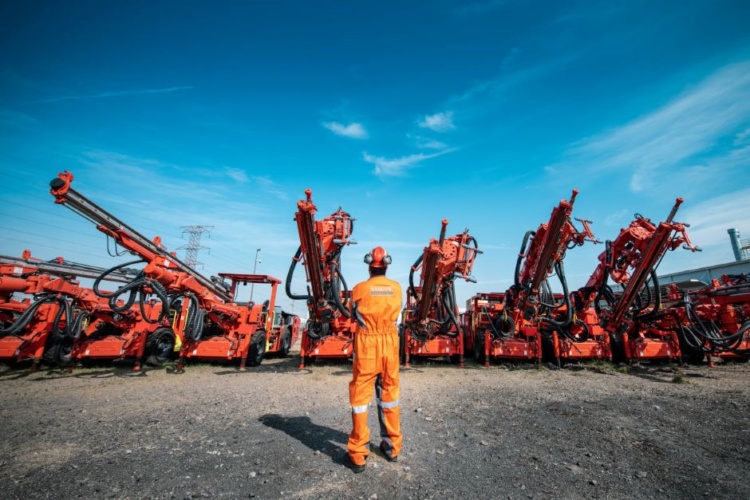
Growing up in a small town to a single mother, receiving a bursary to study chemical engineering changed the trajectory of my life, and opened up opportunities that may not have otherwise been possible. I forged a successful career as a process engineer in the oil and gas industry and spent years developing my technical skills. Knowing the potential engineering had to change lives, I joined a group of engineers and scientists to tutor high school students in mathematics and science. My desire to help people never went away, and in 2013, I decided to undertake a Master of Business Administration (MBA) at the University of Cape Town Graduate School of Business.
After completing an MBA and on the hunt for a business role, I came across a position that stood apart from the rest. An engineering company with innovations in mining and materials technology immediately appealed to my technical fortitude, but it was the role’s promise for adventure and challenge that urged me to hit ‘apply’.

According to a report by WISE Campaign, a community interest company that encourages the uptake of women in STEM careers, children begin to self-identify as ‘not-STEM’ from the age of just ten. But what does a STEM graduate’s identity encompass? If we’re to believe the stereotype that more boys than girls go into STEM — after all, statistics show that over 70 per cent of boys would consider an engineering degree, compared to just 46 per cent of girls — then some may have argued that I didn’t fit the image. However, I have been successfully able to build upon my existing engineering career, and even brought my one-year-old son to some of my international graduate placements.
Alongside ten fellow graduates, hailing from Sweden, China, India and the US, I embarked on not only a graduate program, but a learning experience.
Over the course of 18 months, the program consisted of three rotations spanning three countries and a number of Sandvik’s business areas, including posts at Sandvik business and metal cutting solutions supplier Seco Tools and at Sandvik Coromant, another global leader in machine tooling. During the rotations, my projects ranged from lean manufacturing implementation and supply chain planning, to conducting sales and market research. I enjoyed being able to add value to the business and to draw on the experiences from my local and global colleagues.
The on-the-job rotations were interspersed with two-week learning modules ensuring that we developed a range of soft skills, learning about Sandvik’s core values and how it manages its people and culture, as well as a variety of hard skills that are essential to the business. Every step was a complete learning experience and I received mentoring from senior leadership coaches throughout the entire process.

Of course, exposure to a wide range of specialisms offered a number of benefits. However, the international reach of the Global Graduates Program offers a sense of development that cannot be found in almost any other graduate scheme — even in similar multinational organisations.
I visited not one, but three different countries without any prior first-hand experience with their ways of working. This meant that I didn’t just learn about how to incorporate process mapping into a production facility in India, or which round tools made the most sales in China. I also gained a global perspective.
Companies see global perspectives as one of the top assets of international teams. When asking HR professionals about the biggest benefits of global teams, a 2019 study by the Society for Human Resource Management found that 81 per cent of respondents were most enthusiastic about the exposure to global perspectives that these teams offer. 72 per cent revealed that diversity was a major boon of having global teams, while more than half of the respondents highlighted creativity as another benefit.
During the program, I learned what it was like to work at Sandvik and got to grips with the business culture, customs and cultures of China, India and Sweden — countries in another hemisphere to my home country of South Africa.
The decentralised nature of Sandvik’s business taught me how to work across business areas and employees from all parts of the world. Sandvik operates in more than 150 countries, but the program has taught me that working collaboratively across nations makes the business seem like a much smaller place to work.

I completed the Global Graduate Program in 2017, but my learning experience has never ended. Today, my role as a sustainability manager helps me fulfil exactly what I sought to do when I embarked on my MBA journey — I help to shape the world.
I’m no longer practicing as an engineer, but my work directly impacts the future of the STEM industry. At Sandvik, our sustainability goals include a one third share of female managers by 2030, which stood at 18.2 per cent at the end of 2019. As a sustainability manager, my aim is to support the implementation of all of these goals and make sustainability a part of every aspect of business sales in my area. This includes evaluating waste in our production process, measuring the carbon footprint of Sandvik and its suppliers and delivering guidance on health and safety improvements and our compliance systems.
Sustainability isn’t just about helping our planet. It’s also about doing our best for our people. South Africa has a strong legislative regime, especially in the mining and rock industry. For example, the Mineral and Petroleum Resources Development Act plays a major role in governing community land rights and deciding who gets to mine in certain areas.
Managing Sandvik’s adherence to the local legislation is an important part of my job, as I must demonstrate how the company invests in training local people and creating manufacturing capabilities in South Africa, while following national guidance.
It is also important that I demonstrate the benefits of a global network to my region. While local support helps boost employment in the South African mining sector, being able to show that Sandvik’s global reach can also improve South Africa’s mining exports on an international level is another crucial factor of my work. Working with industry stakeholders and local government, my work isn’t just about Sandvik, but about improving the South African mining sector in its entirety.
When I left my role as a process engineer, I couldn’t begin to imagine where my MBA would take me. As we celebrate females working across the STEM industry, on both the shop and office floors, I would like to encourage women to shape their own worlds. When I became a global graduate, I wasn’t looking for a position, but for purpose. Believing that anything is possible, no matter our identities, is how we will make a true, sustainable impact on industry.
To learn more about Sandvik’s Global Graduate Program, and to apply, visit the Sandvik website




Red Bull makes hydrogen fuel cell play with AVL
Formula 1 is an anachronistic anomaly where its only cutting edge is in engine development. The rules prohibit any real innovation and there would be...